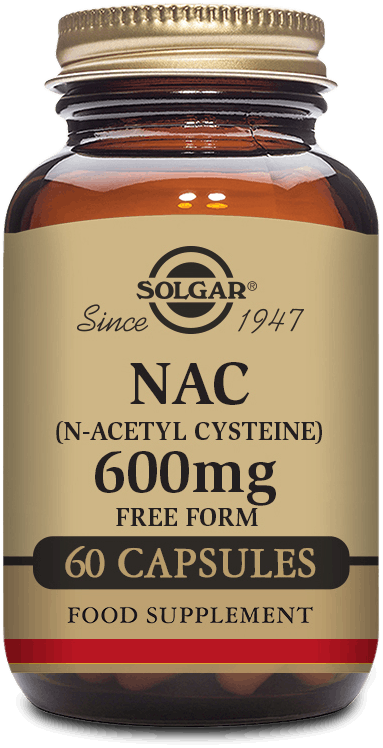N-Acetyl Cysteine (NAC)
N-Acetyl Cysteine (NAC) is a powerful antioxidant and precursor to glutathione, the body's master antioxidant. This versatile compound, derived from the amino acid L-cysteine, plays a crucial role in various physiological processes. NAC's ability to replenish glutathione levels and combat oxidative stress has garnered significant attention in medical research. Its potential benefits span across respiratory health, liver function, and mental well-being, making it a subject of interest for both medical professionals and health enthusiasts alike.
Key Facts
- NAC is a potent mucolytic agent, effectively breaking down thick mucus in the airways.
- It serves as a vital antidote for paracetamol (acetaminophen) overdose, protecting the liver from toxicity.
- NAC supplementation may help improve fertility in both men and women.
- Research suggests NAC could have neuroprotective properties, potentially benefiting brain health.
- The compound exhibits anti-inflammatory effects, which may aid in various chronic conditions.
- NAC's antioxidant properties contribute to its potential in supporting overall immune function.
What does the research say about NAC and its function in the body?
Research indicates that NAC primarily functions as a precursor to glutathione, enhancing the body's antioxidant defenses. Studies have shown its efficacy in treating acetaminophen overdose, improving respiratory conditions, and potentially benefiting mental health disorders due to its impact on neurotransmitter regulation.
What are the primary food sources of NAC?
While NAC itself is not found in foods, its precursor cysteine is present in high-protein foods. Good sources include poultry, eggs, dairy products, legumes, and some seeds like sunflower seeds.
How can I supplement NAC?
NAC is available as an over-the-counter supplement in various forms, including capsules, tablets, and powder. The typical dosage ranges from 600-1800 mg daily, but it's essential to consult a healthcare professional before starting any new supplement regimen.
What are the main symptoms of NAC deficiency?
As NAC is not an essential nutrient, there isn't a specific deficiency syndrome. However, low levels of its precursor, cysteine, or glutathione may manifest as increased susceptibility to oxidative stress, weakened immune function, and potentially impaired detoxification processes.
Are there any known side effects of supplementing NAC?
NAC is generally well-tolerated, but some people may experience mild side effects such as nausea, diarrhea, or headaches. In rare cases, it may cause allergic reactions or interact with certain medications, particularly blood thinners.
How long does it take to see the benefits of NAC supplementation?
The timeframe for experiencing NAC's benefits can vary depending on the specific condition being addressed. Some effects, like its mucolytic action, may be noticeable within days, while others, such as improvements in mental health, may take several weeks of consistent supplementation.
What should consumers look for on the supplement label when supplementing NAC?
When choosing an NAC supplement, look for products that clearly state the dosage per serving and are free from unnecessary additives. Opt for reputable brands that undergo third-party testing for purity and potency, and check for any specific formulations that may enhance absorption or effectiveness.
Can NAC help with respiratory conditions?
Yes, NAC has shown promise in managing various respiratory conditions. Its mucolytic properties make it effective in thinning mucus, potentially benefiting individuals with chronic bronchitis, COPD, and cystic fibrosis. Some studies suggest it may also help reduce the frequency of exacerbations in these conditions.
Is NAC beneficial for liver health?
NAC has demonstrated significant liver-protective properties. Beyond its crucial role in treating acetaminophen overdose, research suggests it may help in managing non-alcoholic fatty liver disease and alcohol-related liver damage by reducing oxidative stress and inflammation in liver tissues.
Can NAC support mental health?
Emerging research indicates that NAC may have potential benefits for certain mental health conditions. Some studies have shown promising results in managing symptoms of obsessive-compulsive disorder, bipolar disorder, and addiction. Its effects on glutamate regulation and antioxidant activity in the brain are thought to contribute to these potential benefits.
Sources


